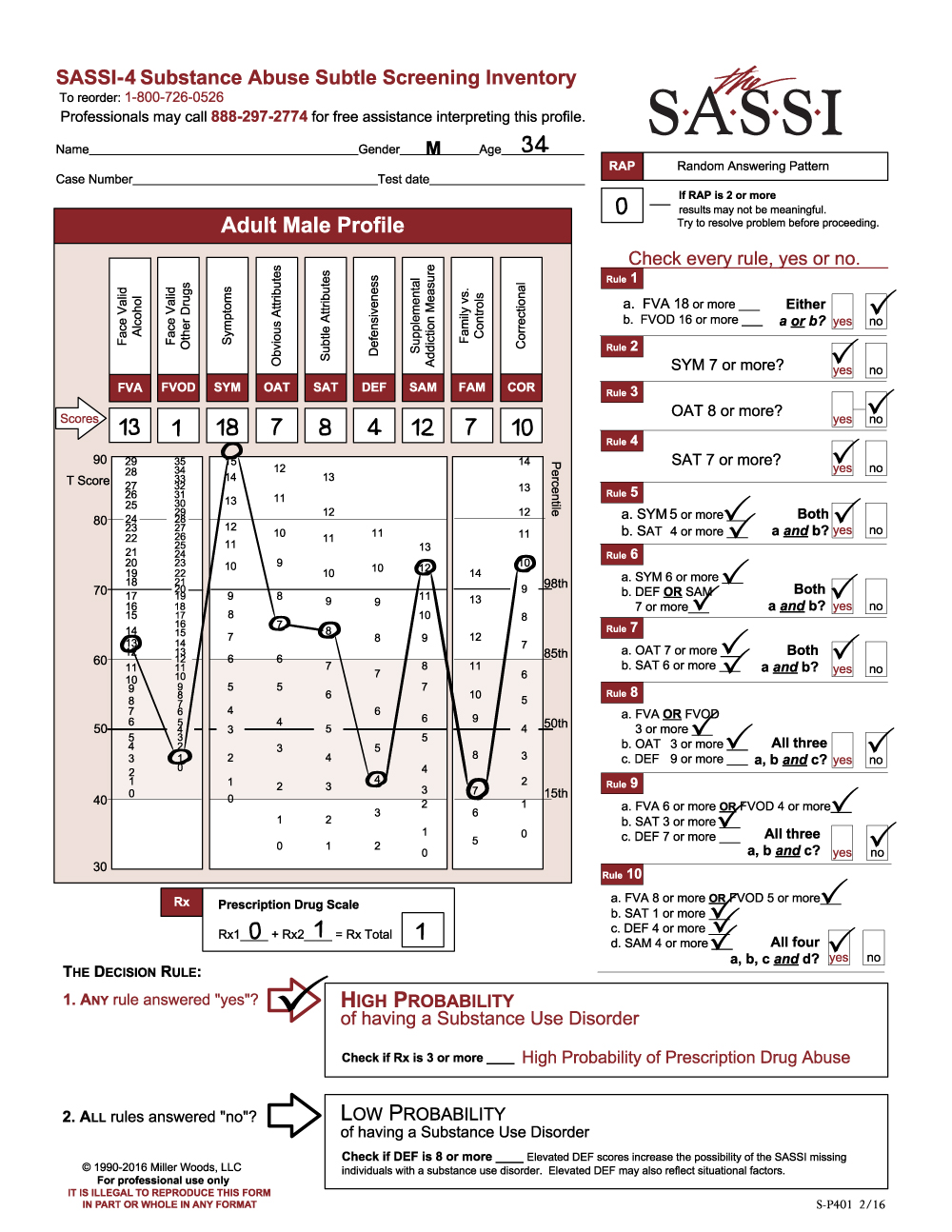The SASSI-4 I am reviewing is interesting for what it is not.
The client was instructed to complete the FVA/FVOD for the last 12 months.
The client is a 34 year old male with a history of drug and alcohol use. He reports that two and a half years ago he successfully completed treatment. He stopped doing drugs but continues to consume alcohol. He was being evaluated by the order of the court for an “altercation with his ex-spouse”. He does meet multiple rules and comes up with a high probability of a substance use disorder. Remember the number of Rules met does not mean a more significant disorder. The diagnosis is based on the DSM-5 with the designation of mild, moderate or severe based on the number of symptoms met.
As seen on the profile sheet, he has a number of elevated scales including the FVA, SYM, OAT, SAT and COR. What is interesting, is that his DEF is not elevated and is below average staying within the norm. For domestic violence cases, this is fairly unusual. Often we see an elevated DEF above the 85th percentile. The FVA and SYM scores indicate an openness and acknowledgment of his use as well as symptoms and consequences. The elevated SYM also indicates he is either hanging out with or from a family of heavy users. In this case, he disclosed his family has a history of alcohol abuse.
The elevated OAT score indicates that he can probably identify with other substance users and those behaviors we often see with substance abusers i.e. impatience, resentment, self-pity and impulsiveness. On the other hand, his elevated SAT indicates a lack of awareness or insight or simple denial of the impact alcohol is having on him. He readily acknowledges his past drug issues but has put alcohol in a separate category. His final elevated scale is COR. Regardless of any past or present legal issues, we encourage evaluating for those behaviors that impact the ability to make good choices. These behaviors can range from poor social skills, low frustration tolerance, risk-taking behaviors to impulse control or anger management issues.
Utilizing the results: The evaluation started out as a domestic violence case but transitioned to also include substance use. The fact that the client was open about his alcohol use, not defensive and has a successful treatment history suggests he may be willing to take a look at his alcohol use and its impact on his behavior. His elevated OAT score does indicate treatment readiness and he is not going to feel out of place in a group setting. The emphasis will be to help him connect the dots between his alcohol use and any impulsive behaviors. This does not take the place of any recommended intervention for anger management issues he may have. The administrator has a good opportunity to facilitate the client to continue the work needed on his recovery and deal with all his issues.
We hope this is helpful for you in your work with your clients. As usual, the free clinical helpline is open for your questions M-F, 11-5, (EST). Don’t hesitate to call us whether you are new to the SASSI or an old hand.

